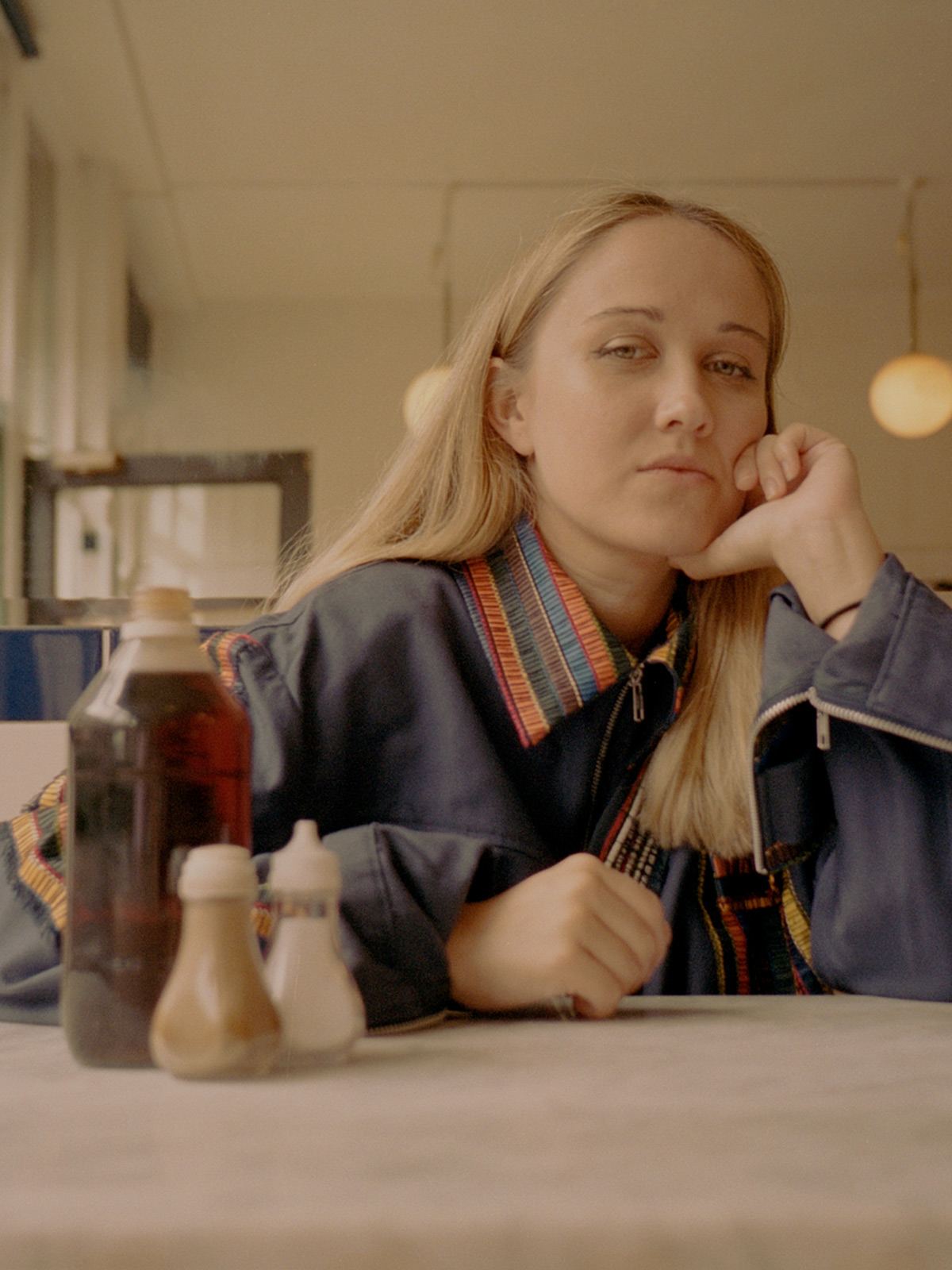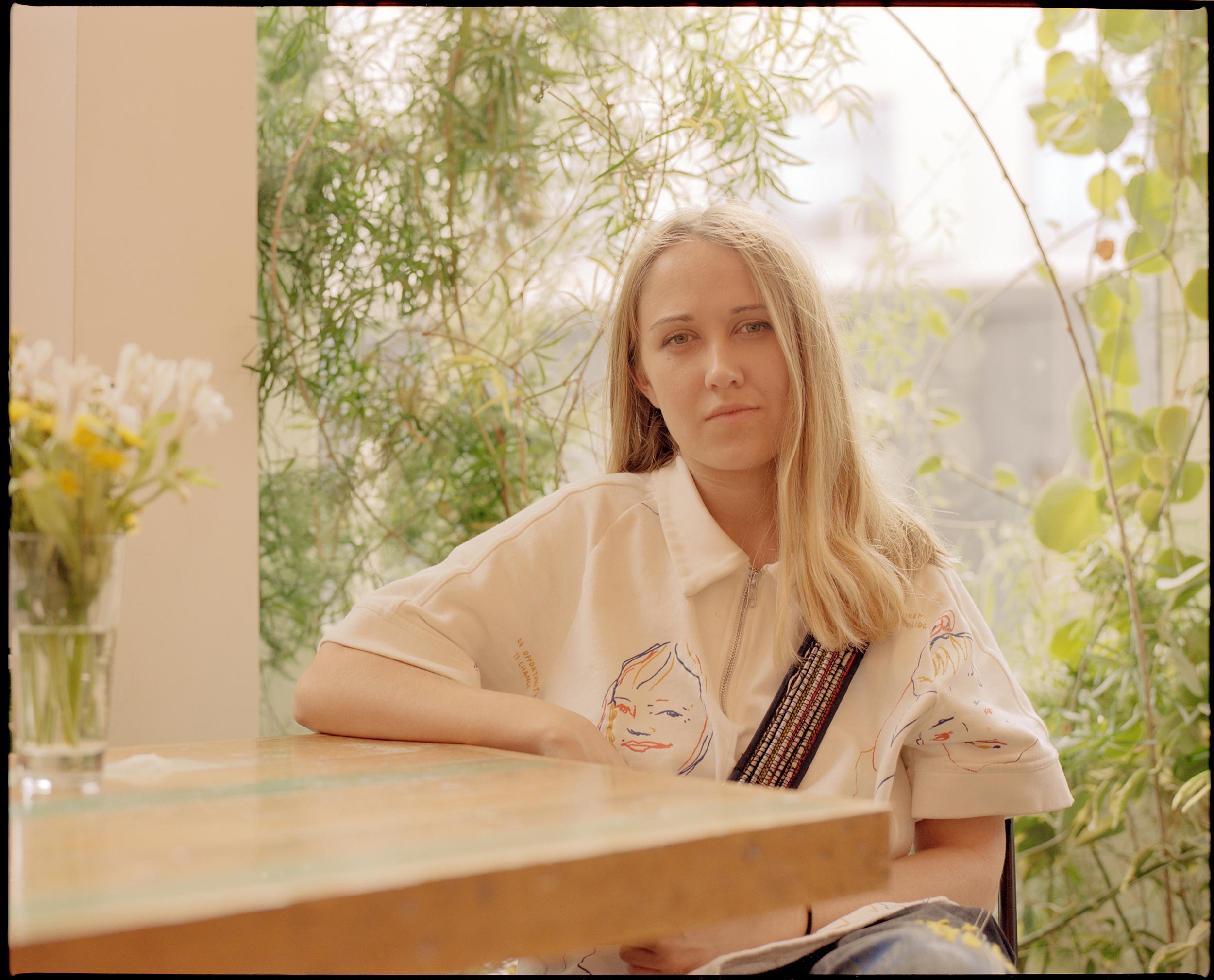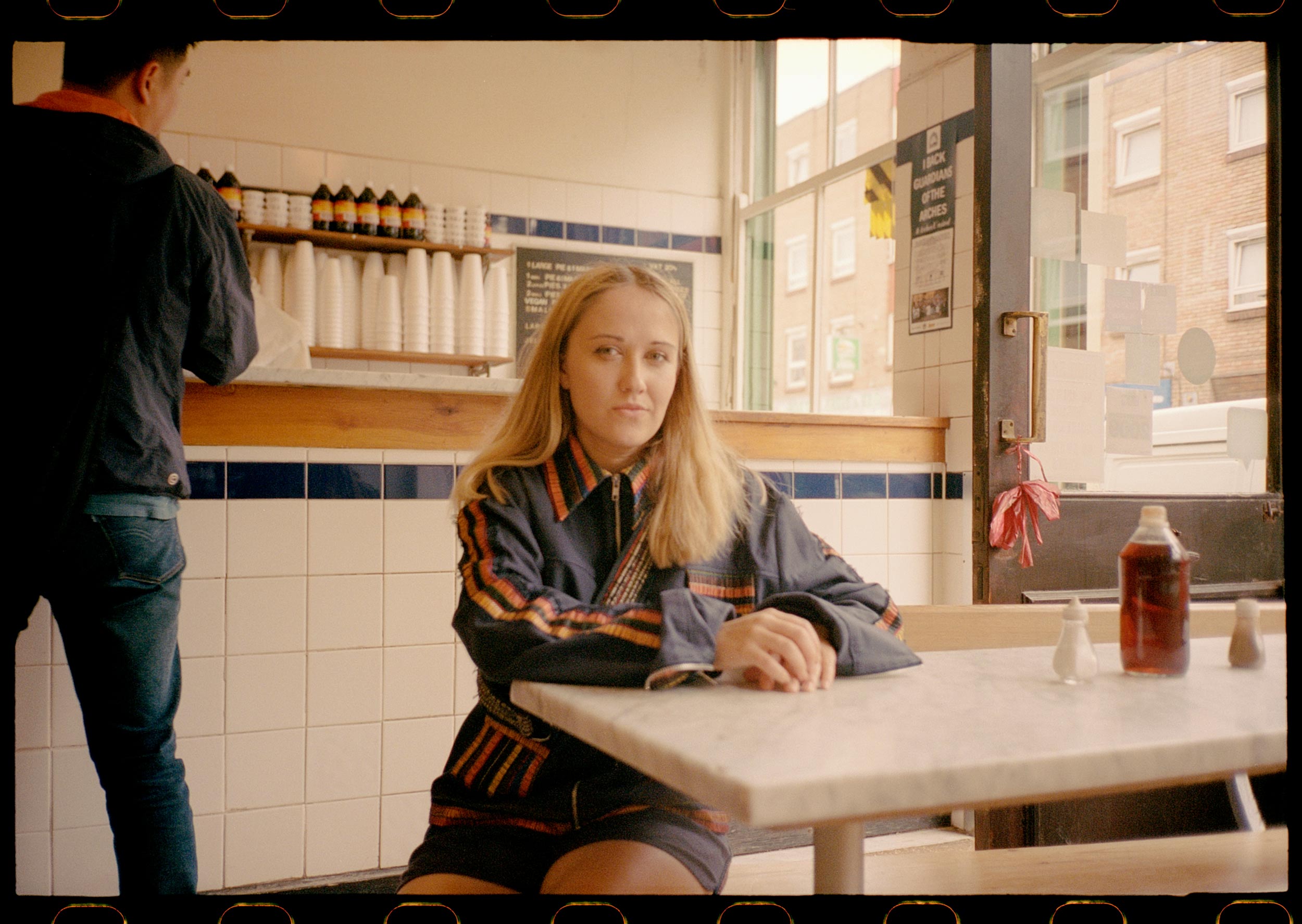Meet the London menswear designer choosing people over product every time.
Trailblazing menswear designer Bethany Williams has become a beacon of hope within the industry. Her practice since its inception has chosen people over product. It is not just her own, it is shared with a multitude of communities. Williams works with women’s crisis centers and prisons, drug rehabilitation centers, and Manx Workshop for the Disabled to offer paid employment to people on society’s fringes, and her collections are often modeled by homeless and struggling youth. Document’s Shawn Lakin discussed with the designer the importance of having a conscious in fashion.
Shawn Lakin—Can you walk me, and the designers and makers who will read this, through how you design sustainably? Or how to?
Bethany Williams—I feel like the word sustainable is really complicated because it describes lots of different practices, lots of different ways of working. Specifically, what I do is work with different social groups and then also work with recycled, upcycled, and organic materials.
Shawn—What came first? Your realization that designers need to be socially conscious in this way or your dream of being a designer?
Bethany—I think more of the social side of things. I kind of felt like I was really interested in people and the environment, but at the same time, I’m really interested in textiles and how things are made, so it’s kind of like bringing both of my interests together. Making and the social side is kind of where I spend most of my time. Actually engaging with fashion, I don’t really spend much–I mean, I do, obviously, for the showcases, for showrooms, my involvement with my stockists, and that kind of thing. But a lot of my time is spent actually in the different communities I work with and also making and designing textiles.
Shawn—Have you had a moment yet in your career where you’ve sat back and realized the impact that you’ve made on someone or a group of people?
Bethany—I think it’s just working with the different charities. I’m working alongside them to celebrate the work that they’ve been doing. For instance, I’m working with a new charity called Spired. I’ve been volunteering with them the last month or so. It’s basically like a safe space for women in South London that are really vulnerable. There’s a drop in center on a Tuesday night. I sat in on that. Everyone can come and have food and there’s talks, and if they have any issues, they just know that it’s there and that it’s always going to be open on a Tuesday between those hours. It was really amazing to know that space exists. The women we meet are usually in crisis, so it’s just having someone to talk to.
Shawn—Wow. Are there other designers that inspire you? Or other business models or people that work in the same way?
Bethany—There’s lots of designers who are now moving in this direction. The designer from [Central Saint Martins] Matthew Needham, he deals with a lot of waste but on, like, a massive scale. [It’s] really interesting, his work… And then, I’m just trying to think. There are people that are doing more social projects that I’m finding interesting. Just trying to think… sorry! You caught me off guard a little bit!
Shawn—We can come back to that.
Bethany—Yeah! Sorry! If that’s okay…
Shawn—Yeah! I’ve read about you a lot and your commitment to sustainability and social causes doesn’t start and end with the brand, which you kind of just discussed. Can you talk about that and how you practice it outside of your studio?
Bethany—I know no one’s perfect, but there are little changes that everyone can make that can really help. Even with my business, I’m trying my best to do my best. But there’s still obstacles in the way, like shipping to get garments to stores all around the world. That’s not very sustainable. For instance, the jeans, the denim, it’s all recycled. We use organic thread, but the top-stitch for denim…we can’t get in that thickness or in the right color wave. There’s aspects of design that the technology hasn’t allowed for that yet. So I think it’s going to be interesting, as technology develops, what options there’ll be.
Shawn—Yeah, for sure. So I’ve read that you employ everyone from female prison inmates, to people in drug rehab centers, to the Manx Workshop for the Disabled. Do you imagine you’ll find more charities to work with? Or are the bonds with those groups already so strong that you think you’ll work with them forever?
Bethany—Yeah, I think I want to work with them forever. As long as they’re still going and I’m still going. I feel like there’s other ones I can expand with—like, for instance, we make all of the dirty pieces with Making for Change, which is a London College of Fashion initiative working with female offenders. The drug rehabilitation center, that’s just specifically where we hand-weave the fabrics from waste products. The disability workshop is in the Isle of Man where I’m from, so I actually know people that it’s really helped. It’s paid employment for two days, and it’s for people that have had either physical or mental trauma. It really helps in gearing one up to go back to work or to socialize. It really helps in building their confidence and for them to make the next steps.
Shawn—Very cool. I’ve also read that you’ve worked with TIH Modeling Agency which supports homeless youth. Can you talk about how you found them?
Bethany—Yeah, so actually Tati, who runs it, was on the Prince’s Trust, which is Prince Charles’ charity, which helps young businesses set up. It’s like a mentoring course. One of my really good friends was on the course with her, and she was like, ‘Oh, Tati this girl…is setting up this agency, this charity, and I think it would be really interesting for you to have a meeting with her…” But it’s not just a home. I think it’s also for people who have employment issues or confidence issues as well. It’s like paid employment to help people get housed and get back on their feet.
Shawn—That’s so interesting. You mentioned it briefly, but you said you were raised to think like that. Can you talk about that more?
Bethany—My mom’s been very influential on me, she’s been very involved–you know, with environmental issues, or even things like not eating tuna.
Shawn—Tuna?
Bethany—At the time, it was tuna meat, when I was growing up, then we had an allotment where my granddad would grow food…and then my mom also worked for a charity, so I just think I’ve been around that. I think a lot of my friends that I grew up around, my group of girlfriends, were quite similar minded as well.
Shawn—You were the second recipient of the Queen Elizabeth II Award for British Design. An honor that recognizes community values and sustainability practices. What was your reaction when you found out?
Bethany—Because Caroline asked me to come in for a meeting, and I really didn’t expect it, I just burst out crying. I just couldn’t stop crying [laughs]…It was really amazing, it just was really amazing, I think, for the community of designers that I’m from, as well, that finally this is being recognized. I think I’ve been thinking about these things for so long, and it’s really nice that people actually value this now, within fashion.











